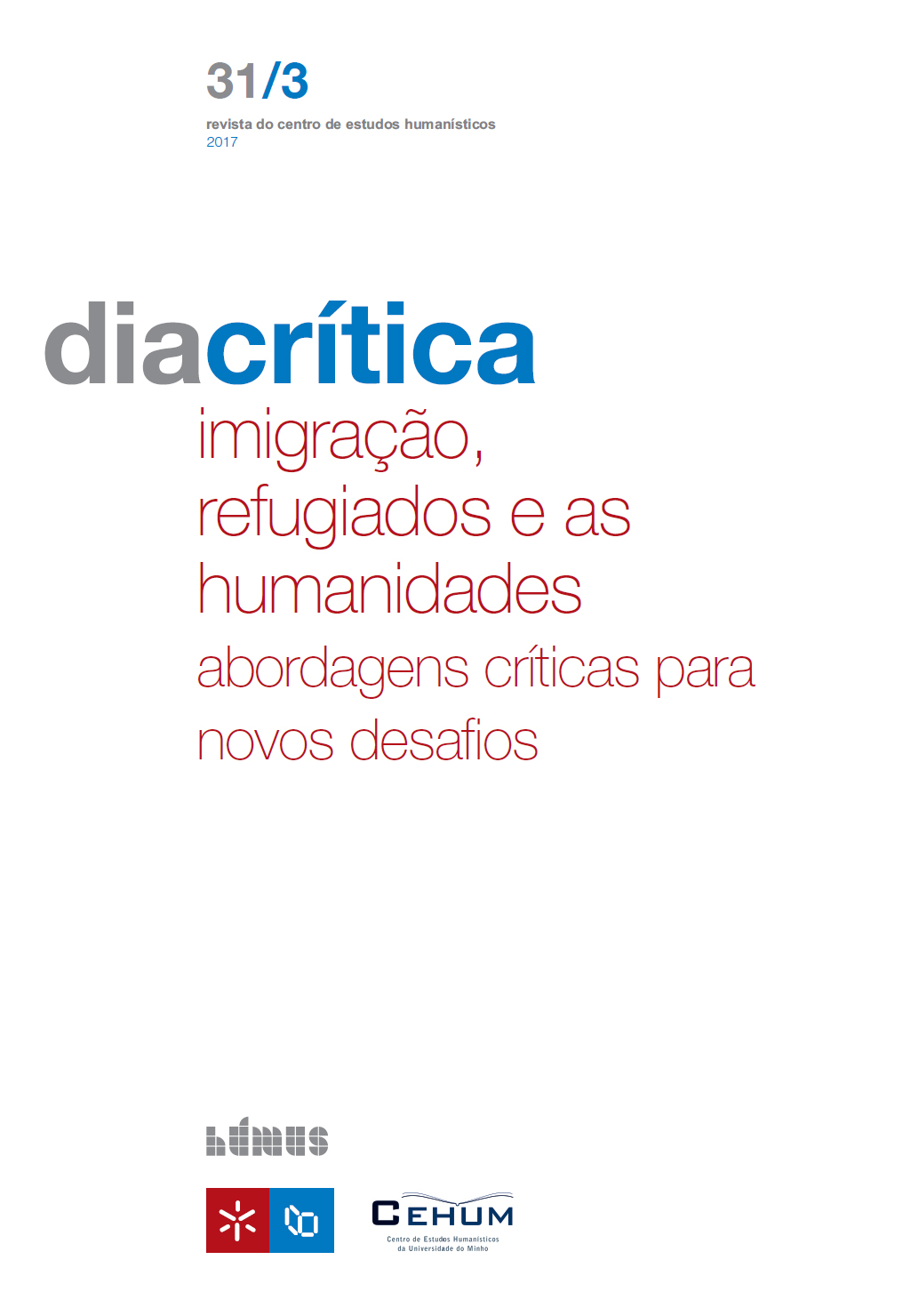CONDITIONS OF HOSPITALITY IN FLANNERY O’CONNOR’S “THE DISPLACED PERSON”
DOI:
https://doi.org/10.21814/diacritica.5167Keywords:
O’Connor, refugees, integration, rejection, law, conventionAbstract
“Thee displaced person” (1954), a short story by the North-American writer Flannery O’Connor, explores the refugee’s issue as it triggers conflict zones that unmask both intercultural and social wounds. Besides the political decisions, there is the difficult task of conciliating diverging wills. All this favours the turning of the refugee into a homo sacer: his rights are not acknowledged; he is taken as labour force, bound for exploitation. "us, hospitality becomes a crossing of different sorts of dangers, which is a privileged topos of this short story. "e present essay dwells on Flannery O’Connor’s views about the refugee’s condition and the scope of the issue as implied in “The displaced person”.
References
Agamben, G. (1998). Homo Sacer, ed. utilizada: Homo Sacer. O poder soberano e a vida nua. Lisboa: Presença [1995].
Arendt, H. (2016). "e Origins of Totalitarianism, ed. utilizada: As Origens do Totalitarismo, 6ª ed., Alfragide: Dom Quixote [1951].
Benjamin, W. (2008). Erfahrung und Armut; ed. utilizada: Experiência e indigência. In O Anjo da História (pp. 207-241). Lisboa: Assírio & Alvim [1933].
Celan, P. (1996). Todesflucht; ed. utilizada: Fuga da morte. In Sete Rosas Mais Tarde (pp.15-16). Lisboa: Cotovia.
Derrida, J. (1996). Le Monolinguisme de l’autre – ou la prothèse d’origine, Paris: Galilée.
_____, (2001). Cosmopolitas de Todos os Países mais um Esforço. Coimbra: Minerva.
_____, (2008). Séminaire. La Bête et le Souverain. Paris: Galilée.
Frederick, A. (2007). Flannery O’Connor: "e Imagination of Extremity. Athens: "e University of Georgia Press [1982].
Gordon, Sarah (2003). Flannery O’Connor: "e Obedient Imagination. Athens/London: "e University of Georgia Press [2000].
Griffith, D. (2015). Disponível: https://www.theparisreview.org/blog/2015/12/10/the-dis-placed-person/ : Consultado em agosto 2017.
Kessler, E. (2017). Flannery O’Connor and the Language of the Apocalypse. New Jersey: Princeton University Press [1986].
O’Connor, F. (2009). "e displaced person; ed. utilizada: Complete Stories (pp. 194-235). Londres: Faber and Faber [1954].
_____, (1960). Some Aspects of the Grotesque in Southern Fiction. Disponível: http://www.openculture.com/2013/04/listen_as_flannery_oconnor_reads_some_aspects_of_the_grotesque_in_southern_fiction_c_1960.html. Consultado em agosto 2017.
Pimentel, I. (2006). Judeus em Portugal durante a II Guerra Mundial. Em fuga de Hitler e do Holocausto. Lisboa: A Esfera dos Livros, 2008.
Rubin Jr., Louis D. (2004). Flannery O’Connor: A note on literary fashions. In: Douglas Robillard, Jr., (eds) "e Critical Response to Flannery O’Connor (pp. 14-18). Westport, Connecticut, London: Praeger [1958].
Sharp, Jolly, K. (2011). Between the House and the Kitchen Yard. "e masks of Flannery O’Connor. Georgia: Mercer University Press.
Žižek, S. (2009). Violence, Londres: Profile Books [2008]
Downloads
Published
How to Cite
Issue
Section
License
Copyright (c) 2023 Lígia Bernardino

This work is licensed under a Creative Commons Attribution-NonCommercial 4.0 International License.










